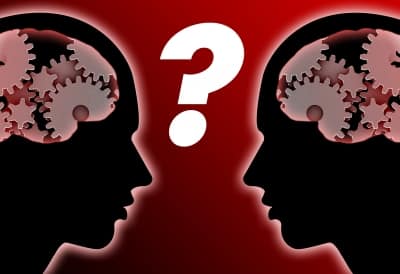Though the winter solstice and Blue Monday have passed, the winter’s midpoint has not. These days you may wake up when it is still dark, or darkness has set in again by the time you leave school or work. Even so, the days are rapidly lengthening. How does this affect your mood?
Though disgust is a universal emotion, little is known about how it emerges. It is assumed that disgust primarily helps us avoid contaminants and diseases. However, disgust responses are not always adaptive. For example, people with a phobia may experience extremely high levels of disgust.
Thinking about how things could have turned out differently can be useful for people. When you think about how something could have gone better, you may learn from it. On the other hand, when you think about how it could have gone worse, you may feel better about yourself.
Negative attentional biases have been linked to depression. The “find the smiling face task” has been shown to reduce these dysfunctional attentional biases. To further validate the task, Thole Hoppen and two fellow students investigated whether the “find the smiling face task” changes attentional biases when people are in sad mood.
Is it possible to identify the sounds people pay attention to, based on brain signals? If so, this could have important implications for urban planning aimed at reducing the noise pollution in today’s cities.
Distressing mental images can severely disrupt a person’s daily life. A psychotherapeutic technique called Imagery Rescripting can reduce the impact of traumatic memories in individuals diagnosed with depression or post-traumatic stress disorder, and it may also work when people visualize a stressful future.
Soccer players often display aggressive behavior when they are frustrated during matches. This aggressive behavior could possibly be explained by a loss of competency that goes along with goal-related frustration. However, pro-social behavior could also possibly be a way to restore that competence.
People with eating problems seem to perceive their environment and themselves differently from people without eating problems. Their thoughts are constantly occupied with eating, body-shape and weight-related themes. Thus, getting through to them to treat their condition can be difficult.
Having worked in Groningen for nearly five years, as far as I know this is the first year the Heymans Institute went all out and invited everyone to leave not only their offices but also the Department buildings, and travel to Het Kasteel, a nearby meeting venue, for an afternoon of psychology pleasures. There were promises of engaging talks, enthusiastic poster presentations, and excellent prize-winning articles. In full support of the three Ph.D. students who organized the event, I attended the afternoon and left excited.
You may know an irritable person. But if he becomes friendlier towards you, then you will become friendlier towards him, right? In other words, positive changes in how people interact with others are ultimately good for them, too. This idea underlies a new theory on how antidepressants work.










